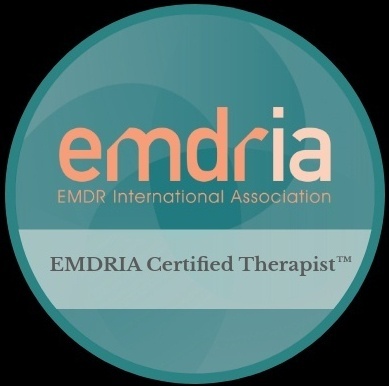EMDR Therapy for Anxiety, ADHD & Autistic Individuals
Eye Movement Desensitization and Reprocessing (EMDR)
What is EMDR?
- Uses bilateral stimulation (eye movements, taps, or tones) to process traumatic memories
- The goal is to desensitize distressing memories and reprocess them with healthy/balanced adaptive beliefs (i.e. “I’m a failure” to “It’s ok to make mistakes, I’m ok just as I am”)
- 8-phase approach guided by a trained EMDR therapist
EMDR helps the brain make new connections and integrate memories in healthier ways. Studies show it reduces PTSD and trauma symptoms for many patients. It has now been adapted to help with many other experiences or feelings, like anxiety and depression, among others.
EMDR allows the natural healing process to resume by connecting the upsetting event, thoughts, feelings or body sensations with the adaptive information we need to effectively store the memory in our long-term memory, where we can recall it, but it is not intruding on our daily lives or being activated when we are not actively thinking of the event(s).
Why EMDR for Anxiety?
First, anxiety is a normal response to some situations and isn’t all bad. Sometimes anxiety can actually be helpful (in small doses!). When it gets too big or too frequent, it can start to wreak havoc on our minds and bodies.
What I see most from my clients is that anxiety tends to stem from things we learned (or didn’t learn), to believe about ourselves, and sometimes from bad habits that seem to be helpful initially, but then just keep us stuck.
EMDR helps your brain and your body get on the same page with what you want, which is to have healthy, balanced thoughts, the ability to manage your emotions and live the life you want to live!
Anxiety is not a sign of weakness, a character flaw, a “chemical imbalance”, or something you’re just stuck with. It’s like the good advice your friends give you, that you just can’t implement, or the wonderful compliments you get from others, but you just can’t fully believe it about yourself.
We want to have thoughts like: “I’m ok just like I am, I can handle this, or I am safe enough here”; but instead we think: “I can’t do this, I’m sure other people think I’m stupid, What if something goes wrong?…..”.
I read that EMDR is for trauma, but I don’t think I’ve been traumatized?
First, everyone responds to situations differently. There is no rule as to what type of situation is considered traumatic and what is not. Sometimes what we learn is to be extra cautious, extra helpful or over-accommodating to others, very thorough in our tasks so we don’t mess up, or always looking out for the negative outcome so we are “prepared”. Over time, these experiences can lead to people having a lot of negative memories around the anxiety or other’s response to our anxiety (or lack thereof!); this is where EMDR comes in to help.
EMDR can help with both desensitizing to anxious triggers (going grocery shopping, driving, talking to co-workers, giving a presentation, etc.), or reprocessing things like panic attacks, or memories associated with anxiety or triggers for anxiety. For example: Maybe you have anxiety when you go to the doctor because you’ve had some scary medical procedures or you’ve had a family with lots of health issues, or you tend to pass out when you get bloodwork done. EMDR can help!


